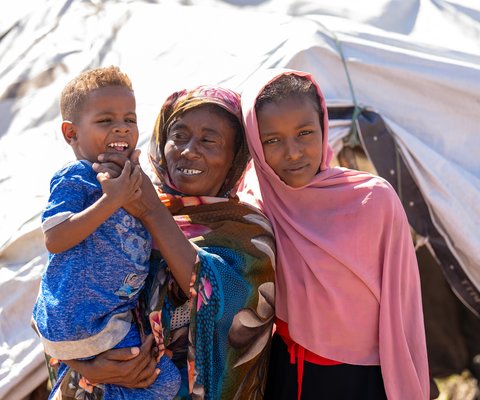The effects of the climate crisis in the Solomon Islands are acute, but savings groups can buffer the impact.
In World War II, the Solomon Islands took it on the chin. The island nation was the site of fierce air and naval battles, as Japan and the US vied for control of supply and communication routes in the Pacific. More than 70 years later, the scars of war are visible everywhere, from rusty tourist attractions to signs about unexploded ordnance. A stretch of water off the coast of Guadalcanal where battleships litter the ocean floor bears the name Iron Bottom Sound.
It might be hard for someone who lived through the war here to imagine that the country is now facing an even greater threat to its existence, but it’s true. With sea levels rising, the beaches that serve as a buffer for coastal communities are eroding fast, and some of the islands in the archipelago have disappeared entirely.
Inland communities are struggling, as well. “It used to be that we would have floods every five years or so,” says Carolina Radi, who lives in the village of Tumurora. “Now it’s happening every year.”
In 2014, three days of heavy rain put her village under more than six feet of water. Children, the elderly, and other vulnerable residents—more than 200 in all—climbed onto the roof of the church and stayed there; the rest just waited it out in the water. For days, there was no food or clean water for anyone.
But something has changed.
With the support of Oxfam and our partner SIDT (the Solomon Islands Development Trust), women in this village have come together to form a savings group. Just as in savings groups around the world, the members make small, regular contributions to a pot of money that can then be recirculated as loans. Some use the funds for expenses like school fees; others invest in their own small enterprises, like market stalls.
But in Tumurora and eight other communities on Guadalcanal, there’s a twist: they’ve also created an emergency fund. The fund not only ensures that people can buy essentials no matter what—it protects them from the hazards of borrowing money from loan sharks or anyone else who might appropriate key assets if the women can’t pay up on time.
“Now, if a disaster happens, we don’t worry too much about whether the government will help us,” says group president Elcy Tuke. “We have money to get our own goods.”
The plan is working. When a flood wiped out their crops in December 2018, the women were immediately able to buy and distribute rice.
Saving is habit-forming, and the women appreciate having an incentive to do it.
“In the past when we had money, it was hard to hold onto. We bought things without thinking to reserve some of it for the future. We’d buy, buy, buy,” says Radi, with a laugh. Not that they were extravagant; Radi’s idea of a splurge was to buy rice, or tuna in a can. “We can live on our garden food,” she explains.
Savings or no savings, there are good reasons to form a women’s group.
“The savings group brings women together regularly. We discuss issues other than savings, like how we are raising our children,” says Tuke. “We used to keep to ourselves, but now we come out a lot and we talk to each other.”
As their savings grow, the women are thinking about the future. With more than 100 members, their pooled funds are growing fast. “We have the potential to create enough savings to start a group business that will raise our standard of living,” says Tuke. Like maybe purchasing a van to move people and goods to and from the capital city.
In the meantime, the women are enjoying their growing stature in their community, and the peace of mind that comes with a network of trusted friends.
Now, says Tuke, “if a problem arises, we know where to turn for help.”



